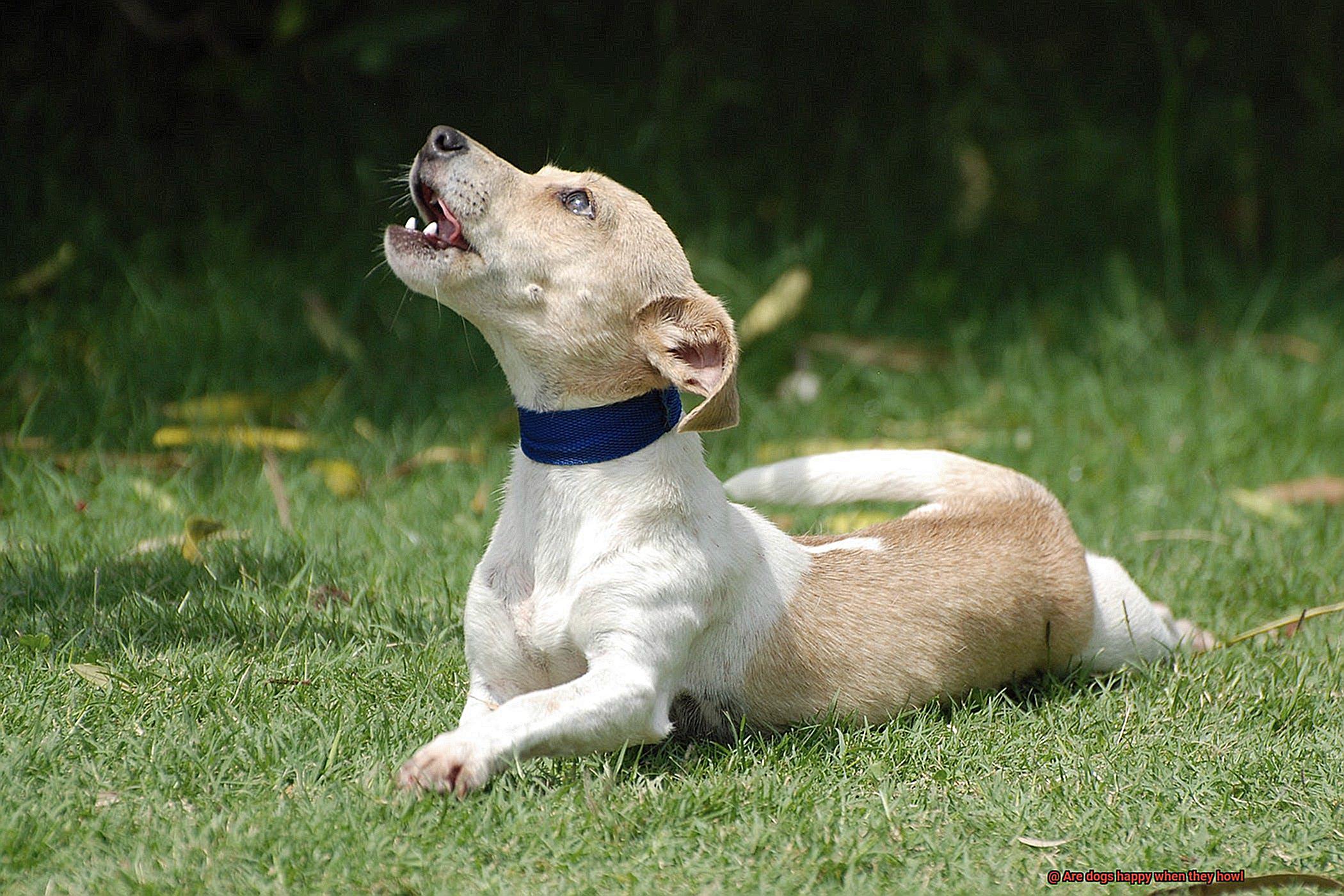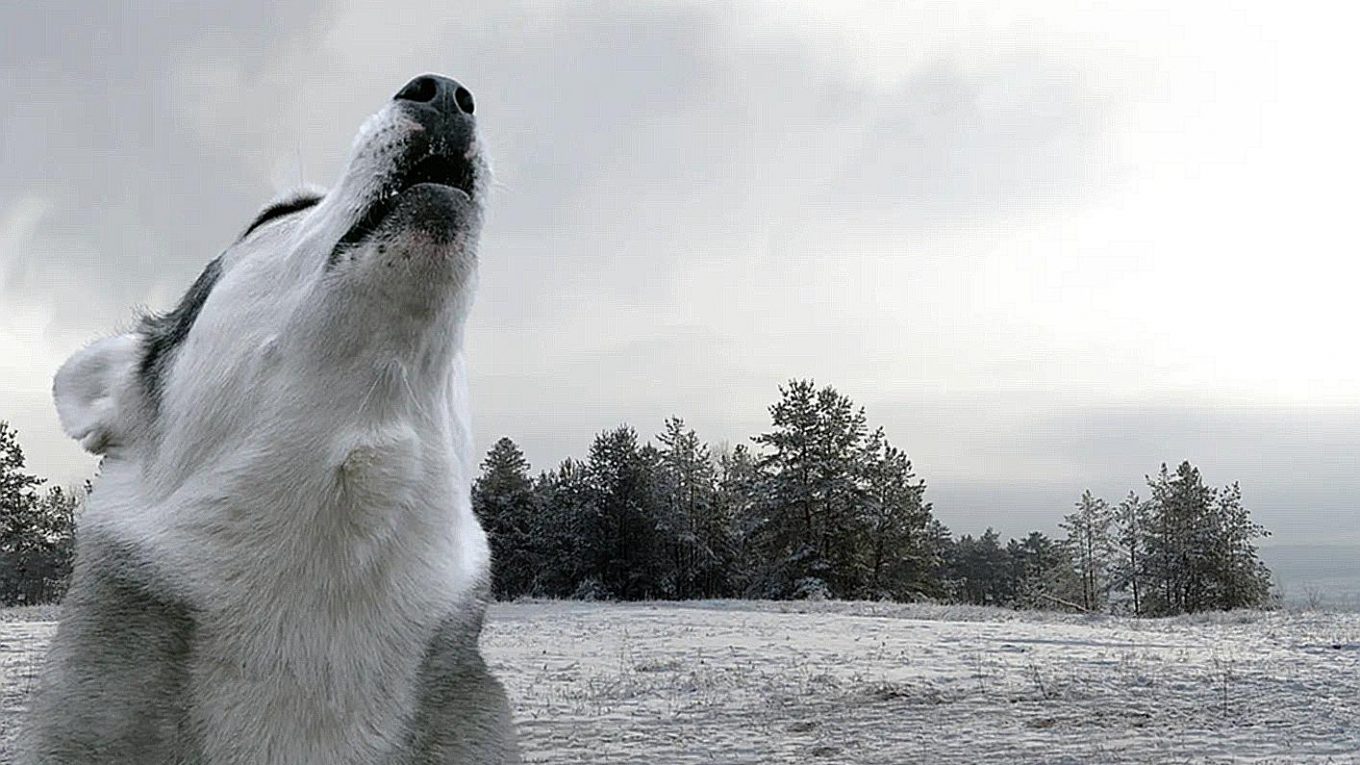Are dogs happy when they howl?
Picture this: the moonlit night, a gentle breeze rustling through the trees, and in the distance, the soul-stirring sound of a dog’s howl. It’s a symphony that has captivated humans for centuries, leaving us wondering – are our furry friends truly happy when they unleash their wild harmonies upon us? Join me on this journey as we delve into the enigmatic world of canine howling. Together, we’ll uncover whether our beloved companions find genuine joy in these melodic moments or if there’s something else behind those haunting melodies. Get ready to be enchanted and enlightened as we peel back the layers of this captivating mystery.
Are dogs happy when they howl
Contents
- 1 Are dogs happy when they howl
- 2 Signs of a Happy Dog That Howls
- 3 Other Reasons for Dog Howling
- 4 Understanding the Context of Your Dog’s Howling
- 5 Breed Characteristics and Predispositions to Howling
- 6 Assessing Your Dog’s Emotional State When They Howl
- 7 The Role of Sound in Stimulating Your Dog’s Instinctual Howling
- 8 Professional Assistance for Determining Whether Your Dog is Happy or Not
- 9 Conclusion
While howling can be a natural behavior for dogs, it’s important to understand that not all howling indicates happiness. In this article, we’ll explore the different reasons why dogs howl and provide insights on how to determine if your French Bulldog’s howling is a sign of joy or distress.
Reasons for Howling:
- Communication: Dogs use howling as a means of communication. They may howl to express loneliness, anxiety, or pain. When your French Bulldog howls, pay attention to their overall behavior and body language to determine their emotional state accurately.
- Excitement and Response: French Bulldogs may join in howling when they hear certain sounds, such as sirens or other dogs howling. This type of howling is more of an instinctual response and doesn’t necessarily indicate happiness. It’s their way of joining in the chorus.
- Happiness and Joy: Some French Bulldogs may howl out of pure happiness and excitement. For example, when you come home after being away for a while, your Frenchie might greet you with joyful howls, wagging tail, and playful behavior. This is their way of expressing their happiness at seeing you again.
Understanding Your Frenchie’s Howling:
To determine if your French Bulldog is happy when they howl, keep these tips in mind:
- Consider the context: Pay attention to the situation in which your Frenchie starts howling. Are they alone, or are they engaging in group howling? Context can provide clues about their emotional state.
- Observe body language: Watch for signs of relaxation and enthusiasm when your Frenchie is howling happily. A wagging tail, relaxed posture, and playful behavior are positive indicators of joy.
- Seek professional advice: If you’re unsure about your Frenchie’s howling behavior or if it becomes excessive, consult with a veterinarian or animal behaviorist. They can assess your pup’s overall behavior and provide guidance tailored to their specific needs.
Signs of a Happy Dog That Howls
Signs of a Happy Dog That Howls
Ah, the sweet sound of a howling dog. It’s like music to our ears, isn’t it? But have you ever wondered what that howl really means? Is your furry friend expressing happiness or something else entirely? Well, fret not, my fellow French Bulldog enthusiasts. I’ve got all the insider knowledge you need to decode those delightful howls and understand if your pooch is one happy hound.
- Wagging tail: When your French Bulldog lets out a melodious howl while wagging their tail like there’s no tomorrow, it’s a telltale sign of pure bliss. They’re telling you, “Hey, I’m having a blast here.”
- Relaxed body language: Take a good look at your fur baby’s body language when they’re howling. If they’re loose and floppy, with no signs of tension or stress, chances are they’re one happy camper. It’s like they’re saying, “Life couldn’t be better.”
- Playfulness: Picture this: your French Bulldog starts unleashing their vocal talents during playtime. That’s a clear indicator that they’re having a grand old time. It’s their way of saying, “Let the good times roll.”
- Contentment: You know those moments when your furry friend is curled up in their favorite spot, eyes halfway closed, and they let out a soft howl? That’s the sound of pure contentment. They’re saying, “I’m in doggy heaven right now.”
Remember, each dog has their own unique personality. Some might be more prone to howling while others may not belt out those tunes as often. But pay attention to the overall behavior and body language to determine if it’s happiness or something else.
Now, it’s important to note that howling can also be triggered by external factors like hearing other dogs or sirens. In these situations, it may not necessarily mean happiness. So keep an eye out for any signs of anxiety or distress, such as excessive panting or aggression. If you notice these red flags, it’s crucial to address the underlying cause and seek professional help if needed.
Other Reasons for Dog Howling

French Bulldogs are adorable and loving companions, but did you know that they can also howl? Howling is a natural behavior for dogs and serves various purposes. In this article, we will explore the different reasons why French Bulldogs may howl and help you understand what your furry friend might be trying to communicate.
Communication and Connection:
Howling is a way for dogs to communicate with others. When French Bulldogs howl, they may be trying to connect with their human family members or other dogs in the household. It’s their way of saying, “Hey, I’m here, and I want to be part of the pack.” Howling can strengthen the bond between your furry friend and the family, creating a sense of togetherness.
Separation Anxiety:
French Bulldogs are known for their loyalty, and when left alone for long periods, they may experience separation anxiety. Howling can be their way of expressing their distress and seeking attention or comfort. If you notice excessive howling when you’re away, it’s essential to address this issue by providing mental stimulation and gradually increasing their independence.
Response to Sounds:
French Bulldogs have keen hearing, so they may join in with howling when they hear certain sounds like sirens or musical instruments. It’s almost like they’re singing along. This behavior is known as “group howling” and can be an instinctual response or a way of communicating their excitement or curiosity.
Boredom and Loneliness:
If your French Bulldog is bored or lonely, they may resort to howling as a way to express their frustration or seek attention. Dogs are social creatures, and being left alone for extended periods without proper mental stimulation or social interaction can lead to howling. Providing them with toys, interactive puzzles, and regular exercise can help alleviate boredom.
Medical Issues:
Sometimes, French Bulldogs may howl due to pain, discomfort, or anxiety caused by certain medical conditions. If your furry friend starts howling excessively or if there are sudden changes in their behavior, it’s crucial to consult with a veterinarian to rule out any underlying health issues.
Understanding the Context of Your Dog’s Howling
French Bulldogs are known for their charming personalities and unique vocalizations. Their howling abilities can be both fascinating and puzzling to their owners. In order to better understand your French Bulldog’s howling, it is important to consider the context in which they are expressing themselves. Let’s explore some common contexts and how to interpret your furry friend’s emotions.
Happiness and Excitement:
French Bulldogs may howl when they are happy and excited. This can occur when you come home after being away for a while or during playtime. When your French Bulldog is howling in a joyful manner, you will notice their tail wagging, relaxed posture, and an overall content expression. It’s their way of expressing their happiness and excitement.
Environmental Stimuli:
Howling can also be a response to certain stimuli in the environment. For example, if your French Bulldog hears sirens, other dogs howling nearby, or even certain types of music, they may join in with their own howls. This is a natural instinct for dogs to communicate with others in their surroundings.
Anxiety and Distress:
On the other hand, if your French Bulldog appears anxious or distressed while howling, it may indicate that they are not happy. Look for signs such as a tense body, pacing, or other signs of discomfort. If your French Bulldog consistently exhibits these behaviors while howling, it could be a sign of separation anxiety or underlying medical issues.
Consider the Breed:
French Bulldogs have their own unique temperament and tendencies. Some French Bulldogs are more prone to howling than others due to their genetic makeup. Understanding your specific French Bulldog’s breed tendencies can help you interpret their howling behavior more accurately.
Seek Professional Guidance:
If you are unsure about your French Bulldog’s howling behavior or if it is causing distress, it is always a good idea to consult with a professional dog behaviorist or trainer. They can provide further insights into your dog’s specific situation and help you address any underlying issues.
Breed Characteristics and Predispositions to Howling
Have you ever wondered why some dog breeds howl more than others? Well, let’s dive into the fascinating world of howling tendencies in various breeds and uncover what makes French Bulldogs unique when it comes to vocalizing.
Breed Differences in Howling Tendencies
Siberian Huskies – The Chatty Canine Sled Pullers:
Siberian Huskies, known for their howling abilities, have a strong instinct to communicate through vocalizations. Originally bred to work in packs, howling was their primary means of conveying messages among the team.
Alaskan Malamutes – Majestic Howlers of the North:
Similar to Siberian Huskies, Alaskan Malamutes were also bred for sledding and possess a natural inclination to vocalize through howling. Their majestic howls can send shivers down your spine.
Beagles – Hound Dogs with a Melodious Bay:
Beagles, originally bred for hunting, have distinct baying and howling sounds that helped hunters locate them during a hunt. Their melodic howls are one of their signature traits.
French Bulldogs and Their Unique Communication Style
French Bulldogs, often regarded as little clowns with big personalities, differ from other breeds when it comes to howling tendencies.
Grunts, Snorts, and Barks – The Frenchie’s Preferred Language:
While French Bulldogs may not be excessive howlers, they excel in other forms of communication. Their grunts, snorts, and barks convey a wide range of emotions, from excitement to contentment.
Individual Personalities and Environmental Factors:
Remember, breed characteristics do not guarantee that all French Bulldogs will behave the same way. Each Frenchie has its unique personality, influenced by environmental factors like socialization and upbringing.
Understanding a Howling Frenchie’s Emotional State
Context is Key:
When your Frenchie howls, it’s crucial to consider the context and accompanying body language. Howling can be an expression of excitement, alertness, or a way to seek attention.
Differentiating Normal from Excessive Howling:
While occasional howling is natural, excessive and prolonged howling may indicate underlying issues such as anxiety or loneliness. If your Frenchie’s howling becomes disruptive or persistent, seeking professional guidance is recommended.
Assessing Your Dog’s Emotional State When They Howl
French Bulldogs are known for their unique communication style, but when it comes to howling, it can sometimes be challenging to understand what they’re trying to convey. In this article, we’ll delve into the world of howling tendencies in dogs and provide insights on decoding your French Bulldog’s emotional state when they howl.
Context is Key:
Pay attention to the context in which your French Bulldog howls. Are they responding to external stimuli like sirens or other dogs’ howls? This could indicate that they are simply joining in on the noise and communicating with their pack. However, if there’s no apparent trigger and they howl excessively or persistently, it may be a sign of emotional distress.
Body Language Speaks Volumes:
Observe your Frenchie’s body language while they howl. Signs of stress or discomfort include a tense body posture, lowered tail, or ears held back. On the other hand, if they appear relaxed and content during their howling episodes, it suggests that they are expressing themselves without negative emotions attached.
Frequency and Duration:
Consider the frequency and duration of your French Bulldog’s howling episodes. Excessive or prolonged howling can indicate underlying emotional issues that require attention. It’s important to note any changes in their behavior and consult a veterinarian or professional dog behaviorist if necessary.
Overall Well-being:
Evaluate your Frenchie’s overall well-being and quality of life. Are they getting enough physical exercise, mental stimulation, and social interaction? Dogs that are happy and fulfilled are less likely to engage in excessive or distressed howling. Ensure their needs are met to promote emotional well-being.
Seek Professional Assistance:
If you suspect that your French Bulldog is unhappy or distressed when they howl, don’t hesitate to seek professional assistance. A veterinarian or dog behaviorist can help identify any underlying issues and provide appropriate solutions or interventions to improve your Frenchie’s emotional well-being.
The Role of Sound in Stimulating Your Dog’s Instinctual Howling
The Role of Sound in Stimulating Your French Bulldog’s Instinctual Howling
Ah, the enchanting sound of a howling pup. Have you ever wondered why your French Bulldog can’t help but join the chorus when they hear certain sounds? Well, my fellow dog lovers, let’s dive into the role of sound in stimulating your furry friend’s instinctual howling.
Why do dogs howl?
Before we start exploring the fascinating world of sound and howling, let’s understand why dogs howl in the first place. Dogs are descendants of wolves, who used howling as a means of long-distance communication within their pack. So, when your French Bulldog lets out a melodious howl, it’s their way of connecting with their ancestral roots.
Sounds that trigger the inner diva
Now, let’s get down to business – which sounds make your French Bulldog channel their inner rockstar? Well, it can be as diverse as the music playlist on your phone. Sirens blaring, musical instruments playing, or even other dogs howling can set off your pup’s vocal chords. It’s like they’re saying, “Hey, I hear you. Let me join in on the fun.”
Distressing sounds
But it’s not always about joining the canine choir. Sometimes, distressing sounds like thunderstorms or fireworks can send your furry friend into a howling frenzy. It’s their way of expressing fear or anxiety – just like humans scream during a horror movie marathon.
Not all dogs are created equal
Now, hold on to your leashes – not all dogs will howl at the sound of music. Some breeds are more prone to this behavior, while others may rarely serenade you with their vocal talents. Factors like individual temperament and upbringing can influence whether your French Bulldog is a howler or not.
Managing the symphony
Understanding the role of sound in stimulating your dog’s howling can be a game-changer. If your pup goes bonkers when they hear certain sounds, you can take steps to minimize their exposure or provide them with calming techniques during those times. Trust me, it’ll save your eardrums and your neighbors’ sanity.
Happy howls vs. distressed howls
While some dogs howl out of excitement or joy, others may do so out of fear or discomfort. It’s crucial to pay attention to your French Bulldog’s body language and overall behavior when they’re belting out those tunes. Are they wagging their tail, prancing around with enthusiasm? Or are they cowering in a corner, tail tucked between their legs? Understanding the context will help you decode the emotional state behind their howling.
Professional Assistance for Determining Whether Your Dog is Happy or Not
However, accurately determining their happiness can sometimes be a challenging task. That’s where professional assistance comes into play. In this article, we will discuss why seeking the guidance of a veterinarian or animal behaviorist is crucial when it comes to evaluating your French Bulldog’s happiness.
Why Professional Assistance Matters:
Holistic Health Evaluation:
Just like humans, a dog’s physical health greatly impacts their emotional well-being. By consulting a veterinarian, you can ensure that any underlying medical conditions causing discomfort or distress are identified and addressed promptly.
Behavioral Observations:
Veterinarians are skilled in observing dogs’ behavior, body language, and interactions with their surroundings. They can detect subtle signs of happiness or distress that might elude untrained eyes. By asking specific questions about your French Bulldog’s behavior at home, they gather valuable information for a comprehensive assessment.
Expert Insights from Animal Behaviorists:
Animal behaviorists specialize in understanding the intricacies of animal behavior, making them invaluable resources when it comes to assessing your French Bulldog’s emotions and needs. Through behavioral assessments, these professionals can identify any underlying issues that may be affecting your pup’s happiness.
Tailored Training and Behavior Modification:
Professional assistance can extend beyond assessments. With the help of a trained expert, you can implement effective training sessions or behavior modification programs to address any behavioral issues that might be causing unhappiness in your French Bulldog. These interventions can improve communication, set boundaries, and create a positive and enriching environment for your furry friend.
OqHR8w-tXMY” >
Conclusion
In conclusion, the act of howling in dogs is not necessarily an indicator of happiness.
While it can be a natural behavior for certain breeds or in specific situations, it does not always mean that they are content or joyful. Dogs may howl when they are feeling lonely, anxious, or even in pain.
By understanding their needs and providing appropriate care and attention, we can ensure that our dogs are truly happy and well-cared for.




